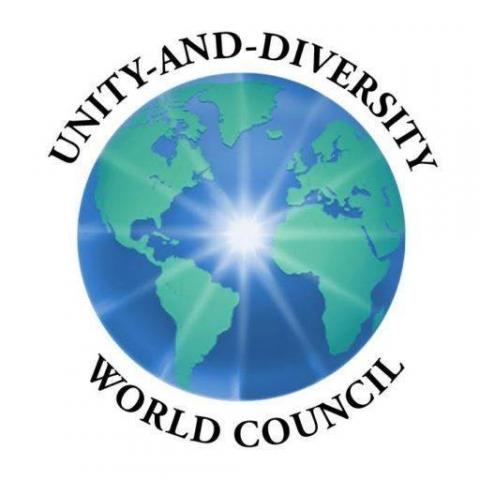Rev. Leland Stewart, B.S.E., B.T.
Unity-and-Diversity Fellowship
5 June 2011(11)
DEVELOPING MODERN SPRITUAL PRACTICES
There will be established on earth a new consciousness and power which will shape a race of wise spiritual beings and take up into itself all of earth-nature that is ready for this new transformation. --Sri Aurobindo, World Scriptures Vol. 2, page xxi
There are many kinds of spiritual practice. Most of them are derived from one of the major religions. Spiritual practices of this kind tend to be based on teachings from one of the earlier civilizations. Some of these practices are very profound and deserving of our attention. On the other hand, we live in the beginnings of a global age, one which has teachings coming from different civilizations of the past and, at the same time, needing to be relevant to this age. Each new civilization will be a combination of older teachings and teachings born of the age now coming into being. It is in the integration of past, present, and future that a civilization gains its completeness.
As the new teachings are combined with new adaptation of the older teachings, a new synthesis can take place. Likewise for our spiritual practices, they are likely to be a combination of both old and new into a meaningful panorama. The new and modern ethics are shaped into teachings that are suitable to this age, and ways of living also are given a new sense of life that makes sense for more and more people. At the Parliament of the World's Religions in Chicago in 1993, Hans Kunz introduced "A Global Ethic". It became the major document of that Parliament and now has a book to develop its teachings.
We do need a global ethic that increasingly gets the approval of the world's peoples, so that there can once again be reliable guidance for what is ethical and what is not. A new understanding of spirituality is also needed, so that the world's peoples can know what is reliable in our understanding of what has been called "God", "Spirit", "Oneness", or by any other name or no name. These things take time in an emerging democracy, so that we cannot expect that everyone will have the same understanding or use the same terminology. When we finally can accept the fact that not everyone needs to believe in the same way or follow the same path, then we will have discovered the meaning of faith in a democracy and be able to communicate it to others.
A spiritual practice is a series of teachings and rituals that help invigorate our life and make it more awakened. It is to be practiced every day and give us a sense of meaning that can make our life more real and enlightened. In an interfaith context, we have the privilege of learning from many faiths and discovering how they fit together. We will discover that these teachings are both ancient and modern, and that somehow they can enrich our lives as we integrate them into our spiritual practice.
In the Spirit of Unity-and-Diversity!!!
C/o Unity-and-Diversity World Council
P.O. Box 661401, Los Angeles, CA 90066-9201
Phone: 310-391-5735; Website: www.udcworld.org

